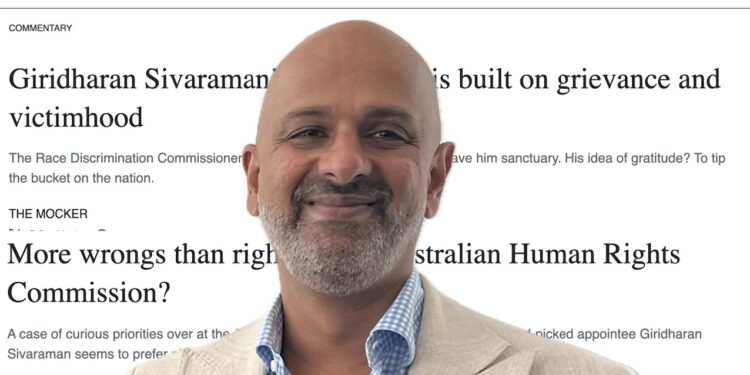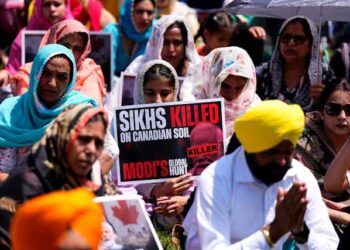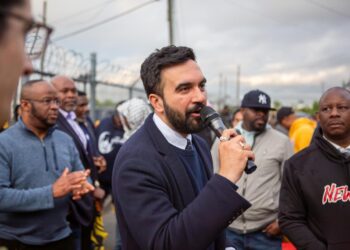The recent article in The Australian targeting Race Discrimination Commissioner Giridharan Sivaraman is not just a personal attack — it reflects a broader discomfort with people of colour who speak plainly about racism in this country. The subtext was clear: if you are a migrant, you should be grateful. And if you have made it to a position of influence, that gratitude must include silence.
But we’ve seen this before. When Senator Fatima Payman broke ranks to vote with her conscience on Palestine, the backlash was swift and unforgiving. When Adam Goodes called out racism in AFL, he was relentlessly booed off the field — not because he was wrong, but because he disrupted the script Australia wanted from its Black athletes. These reactions weren’t about policy — they were about power. And who is allowed to challenge it.
Yet, the real issue here isn’t whether one man should have worded things differently or kept his head down. The bigger problem is how easily conversations about race in Australia are derailed. We do a great disservice to serious issues of racism when we reduce them to oversimplified, reactionary arguments — like, “Are people not allowed to have a barbecue on Australia Day anymore?” That’s not the point. And that kind of strawman framing undermines the deeper conversations we need to be having: about structural inequality, unconscious bias, and the way racism often operates quietly, but pervasively.
We need to talk — and not just to power
One of the most striking failures of anti-racism work in this country is that we all seem to be talking up — multicultural communities to government, Anglo-Australians to media, the media to institutions — but rarely are we talking to each other. Real progress will only come when white Australians and culturally diverse communities are in the same rooms, having honest conversations about what inclusion, equity, and respect actually look like.
We need to move beyond consultation-as-usual. Deep listening, uncomfortable reflection, and mutual accountability must become part of our civic culture. Many Anglo-Australians don’t necessarily deny racism exists — but they don’t see how it relates to them personally. Meanwhile, multicultural Australians may feel exhausted by having to repeatedly explain, justify, or relive painful experiences. These tensions won’t be resolved unless we create new spaces to engage — not with bureaucracy, but with each other.
Structural reform matters — but culture changes when people connect. And without that connection, reforms can feel imposed, misunderstood, or even threatening.
The role of the media
The media plays a significant role in shaping how we understand these debates. It’s worth asking: does The Australian’s portrayal of Sivaraman reflect a broader sentiment in the country? Or is it amplifying a particular ideological discomfort with anti-racism?
To be clear, critique of public officials is fair game. But ridicule — especially when it targets personal stories of belonging, identity, and language — reveals more about the critic than the subject. Responsible media should reflect diverse perspectives, yes — but it should also elevate public debate, not drag it into grievance and mockery.
At NRI Affairs, our mission is to foster more honest and inclusive discourse. That means recognising that not everything must come from one ideological viewpoint. But it also means acknowledging that the media has a responsibility to reflect the full range of public sentiment — not just the loudest anxieties about social change.
Diaspora communities: time for reflection
This is also a moment for diaspora communities to reflect inward. Too often, our political engagement is transactional and performative — hedging our bets between parties, welcoming tokenistic gestures, settling for symbolic inclusion in place of structural change.
Indian-Australians, in particular, are frequently labelled as a “model minority” — praised for hard work, economic success, and keeping out of trouble. But that label comes with strings attached. It encourages silence in the face of injustice and discourages solidarity with those fighting harder, more visible battles: Indigenous communities, asylum seekers, activists for Palestine. Our future in this country depends not just on our ability to integrate, but our willingness to align ourselves with justice.
We must resist being used as political window dressing. Election-time appearances at temples or mosques or multicultural festivals don’t build power — they pacify. Real influence comes when we organise around principles, not performative proximity to power.
And we must also recognise that some behaviours within our communities — particularly imported forms of nationalism or patriarchal norms — can themselves be exclusionary, even harmful. Cultural pride is not a licence to ignore others’ rights or deny our own complicity in injustice.
The opportunity we’re missing
The National Anti-Racism Framework was a step forward — but it missed a critical opportunity: to centre community-to-community engagement. Anti-racism cannot be top-down. It must be grassroots, relational, and inclusive of Anglo-Australians who are open to listening and learning.
We also need to talk openly about cultural friction — including topics that are uncomfortable. For instance, when men from more conservative or patriarchal cultures arrive in Australia, they may struggle to adapt to a society where women have greater agency. These struggles cannot be dismissed, but neither can they be excused. We need cross-cultural dialogue — not to assimilate everyone into a single standard, but to build mutual respect and a shared understanding of rights and expectations.
Social cohesion cannot be one-sided. We cannot demand only one group do the work of understanding, adjusting, or apologising. Respect and responsibility must flow in both directions.
And perhaps most importantly, we must create more opportunities — not just consultations — for Anglo-Australians to hear, understand, and grapple with the impact of racism on our communities. Not all racism looks the same, and not all privilege is recognised as such. That’s why sharing real stories, lived experiences, and human emotions is so important. That’s how empathy is built. And without empathy, structural change will never stick.
A final word
We cannot rely on institutions or individuals alone to drive this change. It’s up to all of us — migrants and mainstream, government and community, media and civil society — to create the conditions where anti-racism is not a flashpoint, but a shared project.
That work is difficult. But it is also possible. And in this moment, it’s more necessary than ever.











